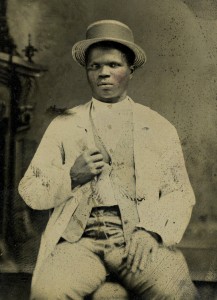 Brigham Young University sent me the following results of a study that analyzed pension and medical records from a random sample of the 179,000 black soldiers enlisted in the Union Army during the Civil War and found some interesting, though not surprising results. The study was performed by Sven E. Wilson of Brigham Young University.
Brigham Young University sent me the following results of a study that analyzed pension and medical records from a random sample of the 179,000 black soldiers enlisted in the Union Army during the Civil War and found some interesting, though not surprising results. The study was performed by Sven E. Wilson of Brigham Young University.
Twenty years after the Civil War ended, the 179,000 African-American veterans of the Union Army saw racial inequality widen as the Pension Bureau left most of them out of a rapid expansion.
According to a new Brigham Young University study, the program shifted away from its relatively color-blind roots when it began granting disability claims based on chronic illness to soldiers who had not been wounded in the war.
During the 1880s, the Pension Bureau approved applications from uninjured white veterans at more than twice the rate of approval for uninjured black veterans.
“Black veterans were far less successful than whites for conditions that were hard to verify and required a degree of trust,” said Sven Wilson, an associate professor of political science at BYU.
[PHOTO CREDITS: Union Army veteran John Pinkey served in Company B of the 104th Infantry Regiment of the USCT (U.S. Colored Troops). Pinkey submitted this photo as part of his pension application. ]